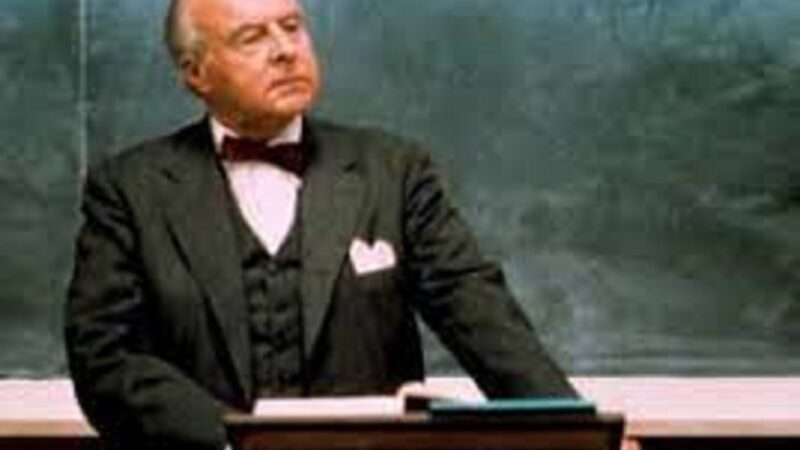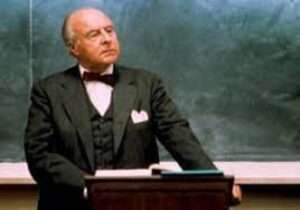

A new study by MIT graduate student Eric Martinez and Georgetown law Prof. Kevin Tobia ("MT") gives us the most comprehensive view so far, of what law professors believe about a variety of legal and policy issues. They (unsurprisingly) find that the overwhelming majority of law professors are on the political left. A closely related, but more original finding, is that a large majority reject originalism as a method of constitutional interpretation. On the other hand, there are a number of important issues on which legal scholars have a surprising degree of cross-ideological consensus. That includes ideas about the goals of criminal justice and contract law, and the utility of textualism as a method of statutory interpretation (which is far more popular than originalism).
But before going into this, it's worth asking why we should even care what law professors think. Or at least why people who are not themselves lawyers, law students, or law professors should care. There are several reasons.
First, law professors are experts on a range of legal and policy issues. With some important caveats, expert opinion is a helpful heuristic for getting at the truth of disputed issues, especially when there is a broad consensus among experts in the relevant field. Of course experts are far from infallible. They can be and often are wrong about issues within their expertise. But, on average, they are more likely to be right about such issues than laypeople.
Second, law professors can influence the views of law students, who - of course - go on to be the next generation of lawyers. Lawyers, in turn, have disproportionate influence on a wide range of public policies. A high proportion of politicians and other policymakers are lawyers, as - of course - are nearly all judges. Maybe lawyers shouldn't have so much influence. But they do.
Finally, a good many lawprofs have a direct influence on the development of law and public policy. Courts often adopt ideas that were first developed by academics. A striking example from the political left is how feminist legal scholar Catharine MacKinnon's argument that sexual harassment is a form of sex discrimination was eventually adopted by the Supreme Court, with major consequences for the development of anti discrimination law. An example on the right is the key role played by conservative and libertarian legal scholars in persuading the Supreme Court to restore judicial protection for gun rights under the Second Amendment. Maybe courts shouldn't be influenced by the ideas of law professors. But they often are.
Even outside the courts, lawprofs sometimes have significant influence on government policy. For example, Harvard law Prof. Cass Sunstein has helped influence governments around the world to adopt policies based on "nudging" and other forms of "libertarian paternalism."
For all these reasons, Martinez and Tobia's findings on the views of law professors are potentially significant. When it comes to their general political orientation, lawprofs are overwhelmingly on the left. MT's survey results shows that 81% of their sample of lawprofs at top 20 schools (as ranked by US News) identify as "liberal" compared to 12% who are "middle of the road" and 7% "conservative." Indeed, "conservatives" of all stripes are heavily outnumbered just by the 22% who identify as "very liberal." The sample of professors at top 50 schools not in the top 20, is only slightly less liberal (72% liberal, 14% middle of the road, 12% conservative).
This result is consistent with previous studies of law professor ideology. But MT's data is more recent and more comprehensive. In addition, because it was produced by scholars who are themselves on the left, it is hard to dismiss as just self-interested griping by conservatives.
An ideological imbalance this great is significant, and likely has at least some skewing effect on research and teaching. That's true even if the imbalance is not due to discrimination in hiring (though evidence suggests some probably is). To be clear, I do not claim that law faculties' ideological balance should "look like America" or that such a result would be achieved if only there were no discrimination in hiring. We don't need the former, and the latter almost certainly isn't true. But, for a variety of reasons, it would be better if the ideological skew were not as great as it currently is. For example, much social science research indicates that ideological homogeneity in groups accentuates various cognitive biases and inhibits the pursuit of truth.
I do have one reservation about the result generated by MT's ideology question. Respondents to their survey could choose from "conservative," "liberal," and "middle of the road" options, but there is no category for "libertarian" or "classical liberal." Such an approach is defensible in surveys of the general population, where people with libertarian views may be only a very small minority (depending on which measure you use), and many probably don't even know what the term "libertarian" means. By contrast, it is likely that a high percentage of non-liberal law professors are in fact libertarians rather than conservatives, and most lawprofs likely do know the word "libertarian."
How do I know? Because the pool of non-liberal lawprofs at top 50 and top 20 institutions is a small enough group that I am personally acquainted with the vast majority of the people in question. And in my experience, at least a third to a half of them are in fact libertarians (the ambiguity is because of differences over exactly where to draw the line). Thus, failing to include "libertarian" or other similar option on the survey is likely to skew the results. That's especially true in an era when growing conflict between libertarians and conservatives have made the two groups increasingly reluctant to identify with each other. Thus, many of the libertarians in MT's sample may have picked "middle of the road" or even "liberal" rather than identify as "conservative." Even so, correcting for this flaw would probably have still led to a finding that the overwhelming majority of lawprofs are on the left, though perhaps slightly less so.
Closely related to the finding on ideology is the result that only 17% of lawprofs in the study "accept" or "lean towards" originalism as a method of constitutional interpretation, while 76% "reject" or "lean against" it. By contrast, 70% support "living constitutionalism" and 61% support "common law constitutionalism" (in the sense of picking "accept" or "lean towards"). In my view, common law constitutionalism is actually a subset of living constitutionalism, but MT classify it separately.
Because the study's methodology allows responds to "accept" or "lean towards" more than one methodology, this likely overstates the degree of support for all three theories (in the sense of the percentage of respondents for whom a given option is actually the theory they prefer above all others). But that makes it all the more striking that so few respondents support originalism even in this attenuated sense.
The authors report that support for originalism is highly correlated with ideology. Conservatives are far more likely to accept it than liberals. This, perhaps, is not surprising. We see the same correlations in surveys of the general public. But, as the authors point out, the result is at odds with perceptions that originalism is rapidly gaining ground in the intellectual world, and with Justice Elena Kagan's famous statement that "we are all originalists." When it comes to the legal academy, she's pretty clearly wrong. Indeed, TM find that support for originalism (17%) is only slightly greater than backing for prison abolitionism (13%) and substantially less popular than the radical idea of granting legal personhood to "non-human animals" (31%).
On the other hand, 61% of law professor "accept" or "lean towards" the use of textualism as a methodology for statutory interpretation. That backing cuts across ideological lines and is only modestly less than support for "purposivism" (77%), and "pragmatism" (73%), while outstripping "intentionalism" (54%).
While textualism is often seen as closely associated with originalism, with both being championed by conservative judges such as the late Antonin Scalia, many legal scholars clearly differentiate between the two, and have a favorable opinion of one, but not the other. For what it is worth, I find the same divergence in student attitudes when I teach constitutional law and legislation classes. Originalism tends to be a highly polarizing topic, with people on the right mostly supporting it, while those on the left mostly don't. By contrast, many liberal students seem to like textualism, and even those that don't rarely object to it as strongly as they do to originalism.
Textualism is just one of a number of issues on which there is considerable cross-ideological agreement in MT's study. Other examples include the purposes of criminal law (where large majorities agree that deterrence, rehabilitation, and incapacitation are all legitimate objectives), and the purposes of contract law. The agreement on criminal law is particularly striking, as I would have expected more left-wingers to reject the notion that we should imprison people for the purpose of preventing them from committing possible future crimes during the time they are are incarcerated (that's what "incapacitation" means). I think that notion is deeply problematic and illiberal. But the vast majority of lawprofs (most of whom are well to the left of me!) apparently disagree.
On the other hand, only 40% of lawprofs in the survey accept or lean towards "retributivism" as a rationale for criminal punishment. That theory, of course, is the most intuitive rationale for punishment, and likely has much broader backing from the general public.
There is much other interesting data in the MT article, which I cannot take the time and space to go over here. They have clearly advanced our understanding of legal academics' attitudes on a wide range of issues. There is also much room for others to build on their research. For example, more needs to be done to determine whether lawprofs specializing in a given area, such as contracts or property, have different views on issues within that field than those who do not.
NOTE: I have used rounding in reporting the survey data figures.
UPDATE: I have made minor additions to this post.
UPDATE 2: I have changed "TM" to "MT" as the abbreviation for the authors' names, because Martinez is actually listed first.
The post What Law Professors Think About Legal Issues - and Why it Matters appeared first on Reason.com.







